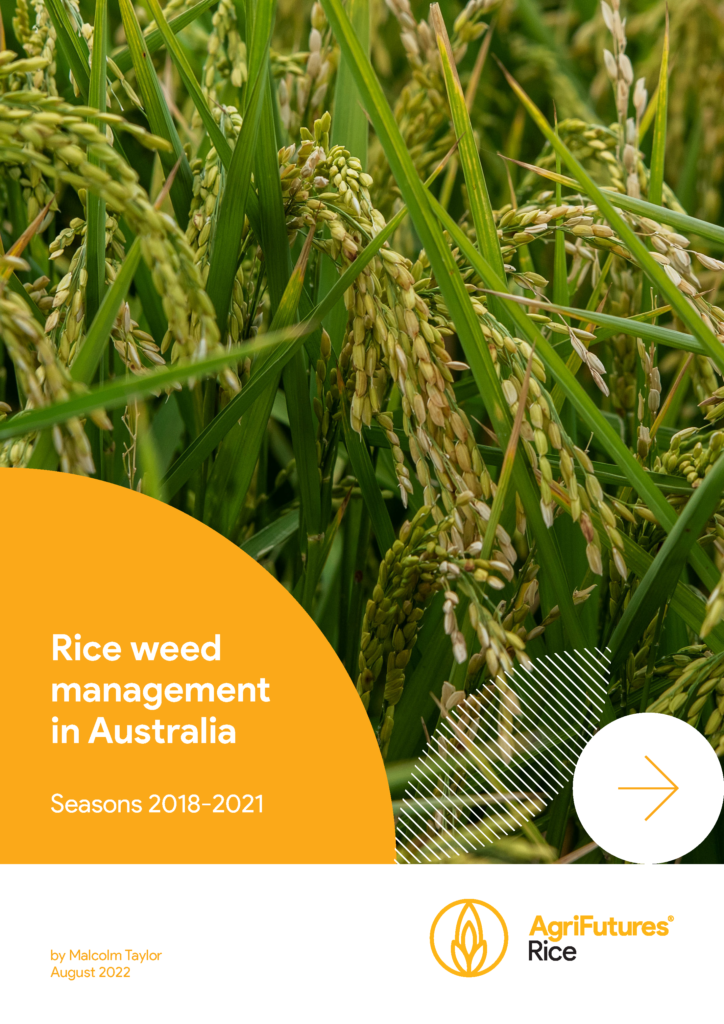The AgriFutures Rice Program invests in research, development and extension activities to support the competitiveness and grow the profitability of the Australian rice industry.
Australian rice farmers are advanced in terms of water productivity and sustainability. However, weeds are a major challenge for rice growers in the southern growing region, where rice is grown under different sowing methods and agronomic practices. As a semi-aquatic plant, rice production is affected by both aquatic and non-aquatic weeds at different growth stages, depending on management practice, until the crop establishes a full cover.
Weeds compete with the crop for both water and nutrients, and this ultimately impacts yields. Good weed management is critical for viable production. Yield losses due to weed competition can be significant and, in extreme cases, result in complete crop failure. Herbicide treatment is generally effective, but over time, weeds can develop resistance to herbicides. Research into new herbicides and updating weed management practices for effective weed control and the prevention of herbicide resistance is a part of delivering value for growers.
This study, which ran from 2018 to 2022, tested combinations of new and existing herbicides in both dry-seeded and water-seeded rice, and developed new weed control programs that are effective and deliver multiple modes of action concurrently on the same cohort of weeds. Additionally, the study sought to maintain and improve the competency of agronomists and growers in managing weeds.
The study identified residual herbicides that can be detrimental to rice production and demonstrated safe and compatible product sequencing and alternatives. Four new herbicide combinations were successfully demonstrated for water-seeded rice. A wealth of herbicide action data for the rice industry was generated while growers, agronomists and extension staff attended field days at the trial site each season. The results of this study have been incorporated in NSW Department of Primary Industries’ ‘Rice crop protection guide’ annually. Further, a herbicide product registration was achieved for water-seeded rice.
These achievements will help growers improve their water use efficiency and overall productivity. Agronomists, extension staff and the wider crop protection industry have a wider toolkit to implement effective weed management approaches for the benefit of growers. The importance of effective weed control for cannot be overstated.





